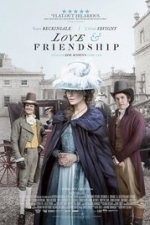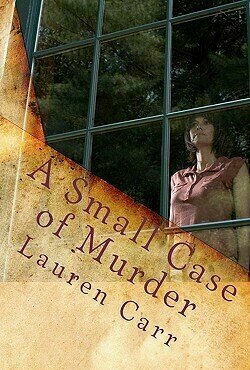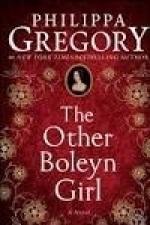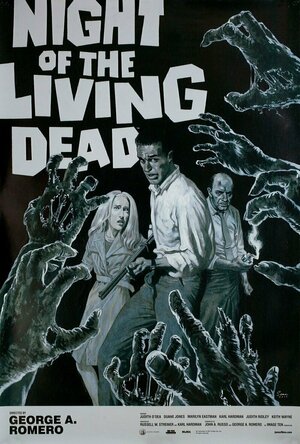Search
Search results
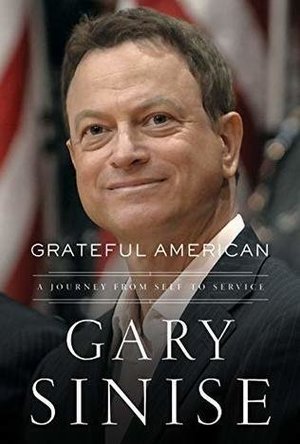
Grateful American: A Journey from Self to Service
Book
The moving, entertaining, never-before-told story of how one man found his calling. "The book is...
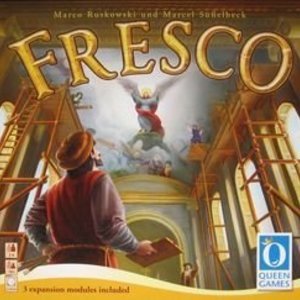
Fresco
Tabletop Game
In Fresco, players are master painters working to restore a fresco in a Renaissance church. Each...
Boardgames ArtGames QueenGames
Bob Mann (459 KP) rated Love And Friendship (2016) in Movies
Sep 29, 2021
Beckinsale excels in a comic tale of Girl Power in the 1790’s.
Set in 1790, Kate Beckinsale plays Lady Susan Vernon, an 18th century cuckoo-like ‘MILF’ (actually, more ‘LILF’, but using the ‘Lady’ term loosely) who with her glamourous demeanor is lusted after by both younger beaus as well as married aristocracy: an example being Lord Manwaring (Lochlann O’Mearáin).
Playing many different ends against the middle, Lady Susan – with the collusion of her American friend Alicia (Chloë Sevigny) – attempts to both find a suitably rich suitor for her daughter Frederica (Morfydd Clark) as well as finding a rich husband for herself to allow her to stay in the manor (sic) to which she has become accustomed. A tale of deception, pregnancy and a marriage of convenience follows: does Lady Susan have to choose between her sexual desires and the rich, stupid and dull Sir James Martin (Tom Bennett, “David Brent: Life on the Road”). Or can she have her cake and eat it?
Based on a Jane Austen short story, “Lady Susan”, this is a delight from beginning to end. However, it does require the attention of the viewer: characters get introduced to you in rapid fire succession, and keeping track of who’s who and how they interrelate is quite a challenge.
But this is a tour de force for Kate “Underworld” Beckinsale who delivers a depth of acting ability that I’ve not seen from her in the past. Her comic timing is just sublime, and while comedies are often overlooked in Awards season, this is a role for which she richly deserves both BAFTA and Oscar recognition.
Stephen Fry joins what is a superb ensemble cast. But outstanding among them is Tom Bennett who is simply hilarious as the nice but dim Sir James. The comic routine about his misunderstanding of “Churchill” (Church – Hill) – a running gag – is sublime and a challenger (with “Was that it t’were so simple”) for the comedy routine of the year.
Directed by Whit Stilman (“The Last Days of Disco”) from his own screenplay, this is one for the more sophisticated viewer: requiring of your full attention, but a treat for the eyes, ears and brain.
Playing many different ends against the middle, Lady Susan – with the collusion of her American friend Alicia (Chloë Sevigny) – attempts to both find a suitably rich suitor for her daughter Frederica (Morfydd Clark) as well as finding a rich husband for herself to allow her to stay in the manor (sic) to which she has become accustomed. A tale of deception, pregnancy and a marriage of convenience follows: does Lady Susan have to choose between her sexual desires and the rich, stupid and dull Sir James Martin (Tom Bennett, “David Brent: Life on the Road”). Or can she have her cake and eat it?
Based on a Jane Austen short story, “Lady Susan”, this is a delight from beginning to end. However, it does require the attention of the viewer: characters get introduced to you in rapid fire succession, and keeping track of who’s who and how they interrelate is quite a challenge.
But this is a tour de force for Kate “Underworld” Beckinsale who delivers a depth of acting ability that I’ve not seen from her in the past. Her comic timing is just sublime, and while comedies are often overlooked in Awards season, this is a role for which she richly deserves both BAFTA and Oscar recognition.
Stephen Fry joins what is a superb ensemble cast. But outstanding among them is Tom Bennett who is simply hilarious as the nice but dim Sir James. The comic routine about his misunderstanding of “Churchill” (Church – Hill) – a running gag – is sublime and a challenger (with “Was that it t’were so simple”) for the comedy routine of the year.
Directed by Whit Stilman (“The Last Days of Disco”) from his own screenplay, this is one for the more sophisticated viewer: requiring of your full attention, but a treat for the eyes, ears and brain.
This book held me in its spell from start to finish. Is that a bit too corny, considering it’s about witches? Actually, I don’t care, because it’s true!
It’s spellbinding, in fact.
Three generations of witches tell the stories of how they came into their power despite the interference of society and men (mainly men though 🤷🏼♀️).
In 1619, Altha Weyward is on trial for witchcraft, and whilst she’s in the towns prison she reminisces over her mother, her life before, everything she has learnt and the circumstances that led up to her incarceration. Altha had the knowledge needed to help people, but that same knowledge put her in danger from the church and general ignorance (and we can’t have women knowing more than men, can we!)
In 1942, Violet Ayres lives a very restricted life, tucked away from the rest of the world in her family home. She has only two clues about her heritage: her dead mothers locket with a “W” inscribed and the word “Weyward” scratched into the skirting board under her bed.
2019, Kate Ayres escapes a violent relationship in London and flees to Weyward cottage - the house her Aunt Violet had left her in her will. It’s a wild, unkempt, rundown house and garden, but it’s what Kate needs. She finds Altha’s diaries, some writings from Violet, and begins to learn about her true inheritance.
I just loved this book so much. Women taking control of their lives away from the men who would control them. Nature and magic is woven throughout, and nothing feels far-fetched or unbelievable.
I loved the alternating chapters between the three women, and this was probably the main reason why I couldn’t put it down. I needed to know what was going to happen to each of them next.
What more can I say? This WILL be high up in my favourite books this year. And to have read it in February!! How lucky am I!
I can’t wait to see what Emilia Hart writes next.
Many thanks to NetGalley and Harper Collins UK for my ebook copy of this book to read and review. Of course these are my own opinions!
It’s spellbinding, in fact.
Three generations of witches tell the stories of how they came into their power despite the interference of society and men (mainly men though 🤷🏼♀️).
In 1619, Altha Weyward is on trial for witchcraft, and whilst she’s in the towns prison she reminisces over her mother, her life before, everything she has learnt and the circumstances that led up to her incarceration. Altha had the knowledge needed to help people, but that same knowledge put her in danger from the church and general ignorance (and we can’t have women knowing more than men, can we!)
In 1942, Violet Ayres lives a very restricted life, tucked away from the rest of the world in her family home. She has only two clues about her heritage: her dead mothers locket with a “W” inscribed and the word “Weyward” scratched into the skirting board under her bed.
2019, Kate Ayres escapes a violent relationship in London and flees to Weyward cottage - the house her Aunt Violet had left her in her will. It’s a wild, unkempt, rundown house and garden, but it’s what Kate needs. She finds Altha’s diaries, some writings from Violet, and begins to learn about her true inheritance.
I just loved this book so much. Women taking control of their lives away from the men who would control them. Nature and magic is woven throughout, and nothing feels far-fetched or unbelievable.
I loved the alternating chapters between the three women, and this was probably the main reason why I couldn’t put it down. I needed to know what was going to happen to each of them next.
What more can I say? This WILL be high up in my favourite books this year. And to have read it in February!! How lucky am I!
I can’t wait to see what Emilia Hart writes next.
Many thanks to NetGalley and Harper Collins UK for my ebook copy of this book to read and review. Of course these are my own opinions!
KatieLouCreate (162 KP) rated Empire of the Vampire in Books
Jul 10, 2023
Empire of the Vampire
This book is not for the feint hearted. Not only is it decidedly grotesque and gruesome, but its also a monster of a book, coming in at 725 pages with another book on the way.
It has been twenty-seven long years since the last sunrise. For nearly three decades, vampires have waged war against humanity; building their eternal empire even as they tear down our own.
Gabriel de León is a silversaint: a member of a holy brotherhood dedicated to defending realm and church from the creatures of the night. But even the Silver Order couldn’t stem the tide once daylight failed us, and now, only Gabriel remains.
Imprisoned by the very monsters he vowed to destroy, the last silversaint is forced to tell his story. A story of legendary battles and forbidden love, of faith lost and friendships won, of the Wars of the Blood and the Forever King and the quest for humanity’s last remaining hope:
The Holy Grail.
The book is dark and gruesome, but also delightfully entertaining. Kristoff puts an original spin on the vampire world and created a deep, well-rounded character with the biggest chip on his shoulder. All the characters are well-developed, to be honest.
The humour, as expected, is dark. Which is what makes it so great. I found myself laughing out loud in parts. I loved the witty banter and insults from the characters.
My woe with this book was, though I enjoyed it, it did feel like I was reading a 725 page book. Sometimes the time flew, and others I found myself counting the pages wondering how much longer this was going to go on for. I think the story could have been shorter without losing anything vital.
Read if you like:
Adult fantasy
Legendary battles
Blood and gore/violence
Religious occult
Dark humour
Don't read if:
You are a child
And dont like:
Prolific swearing
Sexual Content
Violence
Religious Themes
Trigger warnings:
Anything mentioned above
Drug addiction
Child abuse
Homophobia
It reminds me of Interview With a Vampire meets Van Helsing...
It has been twenty-seven long years since the last sunrise. For nearly three decades, vampires have waged war against humanity; building their eternal empire even as they tear down our own.
Gabriel de León is a silversaint: a member of a holy brotherhood dedicated to defending realm and church from the creatures of the night. But even the Silver Order couldn’t stem the tide once daylight failed us, and now, only Gabriel remains.
Imprisoned by the very monsters he vowed to destroy, the last silversaint is forced to tell his story. A story of legendary battles and forbidden love, of faith lost and friendships won, of the Wars of the Blood and the Forever King and the quest for humanity’s last remaining hope:
The Holy Grail.
The book is dark and gruesome, but also delightfully entertaining. Kristoff puts an original spin on the vampire world and created a deep, well-rounded character with the biggest chip on his shoulder. All the characters are well-developed, to be honest.
The humour, as expected, is dark. Which is what makes it so great. I found myself laughing out loud in parts. I loved the witty banter and insults from the characters.
My woe with this book was, though I enjoyed it, it did feel like I was reading a 725 page book. Sometimes the time flew, and others I found myself counting the pages wondering how much longer this was going to go on for. I think the story could have been shorter without losing anything vital.
Read if you like:
Adult fantasy
Legendary battles
Blood and gore/violence
Religious occult
Dark humour
Don't read if:
You are a child
And dont like:
Prolific swearing
Sexual Content
Violence
Religious Themes
Trigger warnings:
Anything mentioned above
Drug addiction
Child abuse
Homophobia
It reminds me of Interview With a Vampire meets Van Helsing...
Lindsay (1796 KP) rated A Small Case of Murder (Joshua Thornton Mystery #1) in Books
Apr 16, 2024
We are introduced to Joshua Thornton and his five children in chapter 1. The prologue brings Lulu Jefferson's view and a little bit about his parents. We are also introduced to Tad. There is a catch as Joshua moves his family to his former hometown.
He seems to get caught helping someone who tried to kill his cousin Tad in a church, and it seems to bring more to be involved. All when he goes to the state attorney general. It is more as his murderer with his arrangement and ends up murdered along with Beth Davis.
There is a twist when things get more complicated, and the state attorney general decides to ask or request Joshua to become a Special Prosecutor for the case of Vicki Rawlings and Beth Davis. They think he got the trust of the citizens of his hometown. Will he take the offer, or will he not?
Joshua is working with a police officer and a local reporter. What appears to be one thing is that his children are so like him that they want to join in and protect him. Does Joshua wish to be a dad and raise them, or will he hide from them and not send this child to live with their extended family? How will he decide to deal with the life he was chosen for?
Lauren Carr's Mysteries and stories are good. However, this one is less dense when it starts at the story's beginning. However, the action is improving, with this one being when Joshua and his five children are introduced. They are about school age. This book gets better as it goes along.
This is probably when she was starting to write these kinds of stories. This is their second series, so it has improved dramatically since. I love this one. I only wish I knew more about what happened to Valerie and what caused her to pass away. Then Joshua moved and settled in his hometown with his lovely five children. But other than that, it is a good starter book or series to get into her books, Along with Mac Faraday Mysteries.
He seems to get caught helping someone who tried to kill his cousin Tad in a church, and it seems to bring more to be involved. All when he goes to the state attorney general. It is more as his murderer with his arrangement and ends up murdered along with Beth Davis.
There is a twist when things get more complicated, and the state attorney general decides to ask or request Joshua to become a Special Prosecutor for the case of Vicki Rawlings and Beth Davis. They think he got the trust of the citizens of his hometown. Will he take the offer, or will he not?
Joshua is working with a police officer and a local reporter. What appears to be one thing is that his children are so like him that they want to join in and protect him. Does Joshua wish to be a dad and raise them, or will he hide from them and not send this child to live with their extended family? How will he decide to deal with the life he was chosen for?
Lauren Carr's Mysteries and stories are good. However, this one is less dense when it starts at the story's beginning. However, the action is improving, with this one being when Joshua and his five children are introduced. They are about school age. This book gets better as it goes along.
This is probably when she was starting to write these kinds of stories. This is their second series, so it has improved dramatically since. I love this one. I only wish I knew more about what happened to Valerie and what caused her to pass away. Then Joshua moved and settled in his hometown with his lovely five children. But other than that, it is a good starter book or series to get into her books, Along with Mac Faraday Mysteries.
graveyardgremlin (7194 KP) rated The Other Boleyn Girl in Books
Feb 15, 2019
Going into <b>The Other Boleyn Girl</b> I already knew that the historical details weren't very factual, but I had this laying around and needed something both light and set in the past, so I figured this would do nicely. The writing itself is perfectly fine, and mostly, I did enjoy the book. Although, for the first half, it seemed as if everyone only wore red and by the end I got so sick of hearing about Anne's "B" for Boleyn necklace I could scream.
Mary Boleyn, the narrator, is a strange character: sympathetic and of reasonable intelligence one minute, a moronic irritant the next. Personality-wise she went up and down and back and forth. First she was fine not being the King's favorite anymore and seeming to want to leave the court life for the country to be with her children, then she was jealous of a title Anne received, years after the affair between Mary and Henry was over. Possibly this was put in as part of the rivalry between the sisters, but it didn't contextually fit. Her development could have used more work and she didn't mature or change much throughout the whole book, especially between the years 1522 to 1533. I seriously got tired of everybody's patronizing and calling her a fool all the time. They should have just named the book, <b>The Foolish Boleyn Girl</b>. I find it hard to believe Mary was so ignorant the king would have continued to have her as mistress for four years, give or take. She had to offer something other than good looks and being great in the bedroom. Anne herself sure was a piece of work, and even though she was pretty much evil throughout the book, I did still feel sorry for her at the end. Jane Parker was a one-dimensional malicious harpy who wasn't given a reason why she was that way; she was just the resident baddy to the Boleyns. To me, it felt like defamation of character.
Politics and the separation of the Church of England from the Catholic Church were merely mentioned in passing as court life and its primary players took center stage. The whole incest plot, I could have done without. Now if it were the absolute truth then it'd be okay, but since it's highly debatable and based on hearsay, I found it unnecessary and gratuitous. Around the two-thirds mark, the pace let up and it became more sluggish and boring, and it wasn't until the last sixty pages that it recaptured my attention again.
As long as readers know going into this book that the history has been twisted around and invented for pure sensation, then it's fine as a fictional read, but take any "facts" with a grain of salt. While it was an okay read, I didn't love it, but it managed to divert my attention for a few days.
One last note dealing with the fourth question in the Q&A with Philippa Gregory in the back of the book:
<blockquote>How about Mary and Anne's brother, George? Did he really sleep with his sister so that she could give Henry a son?
<i>Nobody can know the answer to this one. Anne was accused of adultery with George at their trials and his wife gave evidence against them both. Most people think the trial was a show trial, but it is an interesting accusation. Anne had three miscarriages by the time of her trial, and she was not a woman to let something like sin or crime stand in her way--she was clearly guilty of one murder. I think if she had thought that Henry could not bear a son she was quite capable of finding someone to father a child on her. If she thought that, then George would have been the obvious choice.</i></blockquote>
Obvious? How in the world is that obvious? You cannot be serious, Ms. Gregory. Now I'm far from an expert in Tudor England, but I cannot imagine that being a common practice. Maybe someone more knowledgeable about this time could tell me if that ever happened, because it just boggles my mind that George would be the "<i>obvious choice</i>." Not to mention, who the hell did Anne supposedly kill? I hadn't heard that anywhere. Even my searches are coming up blank.
Mary Boleyn, the narrator, is a strange character: sympathetic and of reasonable intelligence one minute, a moronic irritant the next. Personality-wise she went up and down and back and forth. First she was fine not being the King's favorite anymore and seeming to want to leave the court life for the country to be with her children, then she was jealous of a title Anne received, years after the affair between Mary and Henry was over. Possibly this was put in as part of the rivalry between the sisters, but it didn't contextually fit. Her development could have used more work and she didn't mature or change much throughout the whole book, especially between the years 1522 to 1533. I seriously got tired of everybody's patronizing and calling her a fool all the time. They should have just named the book, <b>The Foolish Boleyn Girl</b>. I find it hard to believe Mary was so ignorant the king would have continued to have her as mistress for four years, give or take. She had to offer something other than good looks and being great in the bedroom. Anne herself sure was a piece of work, and even though she was pretty much evil throughout the book, I did still feel sorry for her at the end. Jane Parker was a one-dimensional malicious harpy who wasn't given a reason why she was that way; she was just the resident baddy to the Boleyns. To me, it felt like defamation of character.
Politics and the separation of the Church of England from the Catholic Church were merely mentioned in passing as court life and its primary players took center stage. The whole incest plot, I could have done without. Now if it were the absolute truth then it'd be okay, but since it's highly debatable and based on hearsay, I found it unnecessary and gratuitous. Around the two-thirds mark, the pace let up and it became more sluggish and boring, and it wasn't until the last sixty pages that it recaptured my attention again.
As long as readers know going into this book that the history has been twisted around and invented for pure sensation, then it's fine as a fictional read, but take any "facts" with a grain of salt. While it was an okay read, I didn't love it, but it managed to divert my attention for a few days.
One last note dealing with the fourth question in the Q&A with Philippa Gregory in the back of the book:
<blockquote>How about Mary and Anne's brother, George? Did he really sleep with his sister so that she could give Henry a son?
<i>Nobody can know the answer to this one. Anne was accused of adultery with George at their trials and his wife gave evidence against them both. Most people think the trial was a show trial, but it is an interesting accusation. Anne had three miscarriages by the time of her trial, and she was not a woman to let something like sin or crime stand in her way--she was clearly guilty of one murder. I think if she had thought that Henry could not bear a son she was quite capable of finding someone to father a child on her. If she thought that, then George would have been the obvious choice.</i></blockquote>
Obvious? How in the world is that obvious? You cannot be serious, Ms. Gregory. Now I'm far from an expert in Tudor England, but I cannot imagine that being a common practice. Maybe someone more knowledgeable about this time could tell me if that ever happened, because it just boggles my mind that George would be the "<i>obvious choice</i>." Not to mention, who the hell did Anne supposedly kill? I hadn't heard that anywhere. Even my searches are coming up blank.
Rachel King (13 KP) rated Lion's Honey: The Myth of Samson in Books
Feb 11, 2019
I was a little surprised as to what comprised this book, as I expected to find a fictional retelling after the reproduction of Judges 13-16 of the King James Bible. Instead, what follows is a detailed commentary that examines and dissects the Biblical account, using even the original language to understand the full meaning of the text, with all of its nuances and allusions. As many times that I have studied the story of Samson in church growing up, there is apparently quite a bit that I never knew about such an interesting character in Hebrew history.
As any person chosen of God to do His will, Samson is a man plagued by his destiny and how it separates him from the rest of humanity. Though chosen of God from the womb to live as a Nazarite, he is still very much human with human urges. Almost constantly at war with himself, Samson seems to set himself up to be hurt by those he puts his trust in so that he may let loose his anger and rage against those who hold his people captive -- the Philistines. Like so many modern-day psychological head cases, much of his choices are also driven by a need for that hidden something lacking in his relationship with his parents. He looks for it in the wrong places and the wrong women, even paying a visit to a prostitute. He seems to use his strength and anger with an artistic flair, first setting up a group of Philistines at his wedding with an unsolvable riddle, and later finding rather unique ways of further punishing the Philistines, such as using the jawbone of an ass to kill a thousand of them. Furthermore, every verbal account from Samson is spoken poetically.
What I found most interesting is the way that David Grossman explored the account of Samson and Delilah. He alludes that Samson in fact knew the betrayal that Delilah harbored and welcomed it in order to finally shed his God-given destiny. While he ends his life in a final act of redemption, I have to wonder if he did complete the task that God had given him to "begin to deliver Israel out of the hand of the Philistines."
Despite the intense detail that David Grossman goes into when writing this study of Samson, the book is a very good read and well worth my time.
As any person chosen of God to do His will, Samson is a man plagued by his destiny and how it separates him from the rest of humanity. Though chosen of God from the womb to live as a Nazarite, he is still very much human with human urges. Almost constantly at war with himself, Samson seems to set himself up to be hurt by those he puts his trust in so that he may let loose his anger and rage against those who hold his people captive -- the Philistines. Like so many modern-day psychological head cases, much of his choices are also driven by a need for that hidden something lacking in his relationship with his parents. He looks for it in the wrong places and the wrong women, even paying a visit to a prostitute. He seems to use his strength and anger with an artistic flair, first setting up a group of Philistines at his wedding with an unsolvable riddle, and later finding rather unique ways of further punishing the Philistines, such as using the jawbone of an ass to kill a thousand of them. Furthermore, every verbal account from Samson is spoken poetically.
What I found most interesting is the way that David Grossman explored the account of Samson and Delilah. He alludes that Samson in fact knew the betrayal that Delilah harbored and welcomed it in order to finally shed his God-given destiny. While he ends his life in a final act of redemption, I have to wonder if he did complete the task that God had given him to "begin to deliver Israel out of the hand of the Philistines."
Despite the intense detail that David Grossman goes into when writing this study of Samson, the book is a very good read and well worth my time.
RəX Regent (349 KP) rated Night of the Living Dead (1968) in Movies
Feb 19, 2019
Iconic, influential and ground-breaking. All words to describe George A. Romero’s inaugural zombie horror, but what sets this apart from its contemporaries and the endless variations in the genre in which this Indie movie helped spawn?
Well to begin with, this is far from a simple zombie thriller. The real villains here are the collection of damaged human characters who all find themselves trapped together in an old farmhouse, barricaded within its fragile wooden walls, fighting not only the onslaught of zombie without, but the angst and fear from within.
At times they work together but unlike most films like this, the group rarely work at all, with conflicted views on how to survive, blinding them to the fact that if they only worked together they may just do so.
Instead, they all end up dead, with our leading man, a strong, smart black character, which at the time was a bold choice, being murdered by the redneck police posse, who mistake him for a zombie. But the metaphor, though hard to ignore, of a black man being gunned down without the white men bothering to ensure that he was zombie, may just be a coincidence, but the irony that he, Ben (Duane Jones) manages to survive until the end only be to gunned down in the final moments, is a tragedy that sums up this film’s tone.
With a killer child, a nude female zombie, a dysfunctional couple and the first named victim displaying a complacent contempt for God and the church, this group are real, though the acting standards are variable, the writing and direction are constantly very good, with a sense or gritty realism permeating throughout. Maintained by good pacing and gruesome cannibalistic action, this raised the bar of the genre, both now and then.
Even the zombies get a reasonable, yet none definitive explanation, as told through the radio and TV news. Radiation bringing the dead back to life, well, it may be the trope of 1960’s sci fi but it was well explained and the news reports were well composed, feeling more realistic than most movie news broadcasts.
Romero may have gone on to milk this franchise for all it is worth in the decades since but this opening low budget gem is a real piece of work; A complex moral drama set on one chaotic night in which the dead become living again.
Well to begin with, this is far from a simple zombie thriller. The real villains here are the collection of damaged human characters who all find themselves trapped together in an old farmhouse, barricaded within its fragile wooden walls, fighting not only the onslaught of zombie without, but the angst and fear from within.
At times they work together but unlike most films like this, the group rarely work at all, with conflicted views on how to survive, blinding them to the fact that if they only worked together they may just do so.
Instead, they all end up dead, with our leading man, a strong, smart black character, which at the time was a bold choice, being murdered by the redneck police posse, who mistake him for a zombie. But the metaphor, though hard to ignore, of a black man being gunned down without the white men bothering to ensure that he was zombie, may just be a coincidence, but the irony that he, Ben (Duane Jones) manages to survive until the end only be to gunned down in the final moments, is a tragedy that sums up this film’s tone.
With a killer child, a nude female zombie, a dysfunctional couple and the first named victim displaying a complacent contempt for God and the church, this group are real, though the acting standards are variable, the writing and direction are constantly very good, with a sense or gritty realism permeating throughout. Maintained by good pacing and gruesome cannibalistic action, this raised the bar of the genre, both now and then.
Even the zombies get a reasonable, yet none definitive explanation, as told through the radio and TV news. Radiation bringing the dead back to life, well, it may be the trope of 1960’s sci fi but it was well explained and the news reports were well composed, feeling more realistic than most movie news broadcasts.
Romero may have gone on to milk this franchise for all it is worth in the decades since but this opening low budget gem is a real piece of work; A complex moral drama set on one chaotic night in which the dead become living again.

